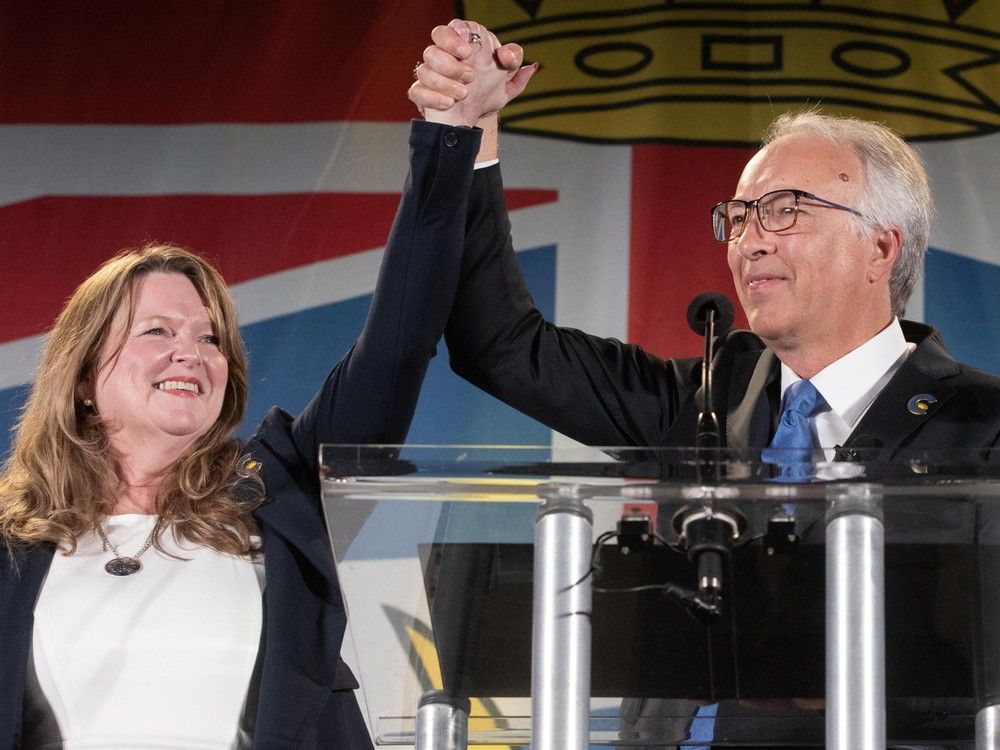CAPE says the new policy, which requires many public servants to work in office at least three days a week, is bad for productivity.
Published Oct 15, 2024 • 2 minute read

A federal public sector union is asking a parliamentary committee to probe the impact of the government’s return-to-office policies on public servants’ productivity.
The Canadian Association of Professional Employees (CAPE), which represents more than 27,000 government workers, called on the standing committee on government operations and estimates to launch an investigation into what it called the “catastrophic failures” of the new rules, which have required many public servants to work in office at least three days a week as of Sept. 9.
Advertisement 2
THIS CONTENT IS RESERVED FOR SUBSCRIBERS ONLY
Subscribe now to read the latest news in your city and across Canada.
- Exclusive articles from Elizabeth Payne, David Pugliese, Andrew Duffy, Bruce Deachman and others. Plus, food reviews and event listings in the weekly newsletter, Ottawa, Out of Office.
- Unlimited online access to Ottawa Citizen and 15 news sites with one account.
- Ottawa Citizen ePaper, an electronic replica of the print edition to view on any device, share and comment on.
- Daily puzzles, including the New York Times Crossword.
- Support local journalism.
SUBSCRIBE TO UNLOCK MORE ARTICLES
Subscribe now to read the latest news in your city and across Canada.
- Exclusive articles from Elizabeth Payne, David Pugliese, Andrew Duffy, Bruce Deachman and others. Plus, food reviews and event listings in the weekly newsletter, Ottawa, Out of Office.
- Unlimited online access to Ottawa Citizen and 15 news sites with one account.
- Ottawa Citizen ePaper, an electronic replica of the print edition to view on any device, share and comment on.
- Daily puzzles, including the New York Times Crossword.
- Support local journalism.
REGISTER / SIGN IN TO UNLOCK MORE ARTICLES
Create an account or sign in to continue with your reading experience.
- Access articles from across Canada with one account.
- Share your thoughts and join the conversation in the comments.
- Enjoy additional articles per month.
- Get email updates from your favourite authors.
THIS ARTICLE IS FREE TO READ REGISTER TO UNLOCK.
Create an account or sign in to continue with your reading experience.
- Access articles from across Canada with one account
- Share your thoughts and join the conversation in the comments
- Enjoy additional articles per month
- Get email updates from your favourite authors
Sign In or Create an Account
or
Article content
“If the failures of Canada Life or of the Phoenix pay system weren’t enough to make the federal government one of the least attractive employers in the country, the government’s reluctance to offer remote work flexibility may well solidify that perception,” said Nathan Prier, president of CAPE, in a letter to the clerk of the committee.
Prier asked the committee to look at a number of issues, including health and safety violations, noisy office environments and a lack of physical meeting spaces.
The federal government has argued that the increased office presence is necessary for collaboration. But Prier said that the government’s three-day policy has been “ineffective” for thousands of CAPE’s members, as many have commuted to offices only to use Microsoft Teams meetings to communicate with colleagues that weren’t physically in the same building.
In early October, Christian Fox, the deputy clerk of the Privy Council, said that while there had been “some hiccups” in the rollout of the new rules “overall it’s gone relatively well.” She refused to rule out requiring public servants to work in office at least four days a week, but also said the federal government is committed to hybrid work.
Advertisement 3
Article content
Internal Treasury Board documents, obtained by the Public Service Alliance of Canada (PSAC) through access to information requests, show that the federal government’s decision to send employees back to the office three days a week was partially made to gain the public’s trust and contradicted studies that found remote work boosted productivity.
PSAC, which is fighting the new return-to-office policy in court, also released an analysis of Statistics Canada data that shows a 4.5 per cent growth in productivity between 2019 and 2023 within the federal government.
In his letter, Prier said that a lack of physical office space and a “cumbersome” booking system has not created “optimal conditions for employees to be productive.”
He added that “new office presence surveillance systems and practices,” which monitor whether public servants are coming into the office, raise privacy concerns.
“This level of monitoring is going too far, as it creates an atmosphere of mistrust, undermining employee confidence and stifling creativity,” he said.
Recommended from Editorial
-

Feds won't rule out forcing public servants back to office for four days a week
-

Analysis shows public sector productivity grew while working from home
Article content
.png)
 4 days ago
10
4 days ago
10




































 Bengali (BD) ·
Bengali (BD) ·  English (US) ·
English (US) ·